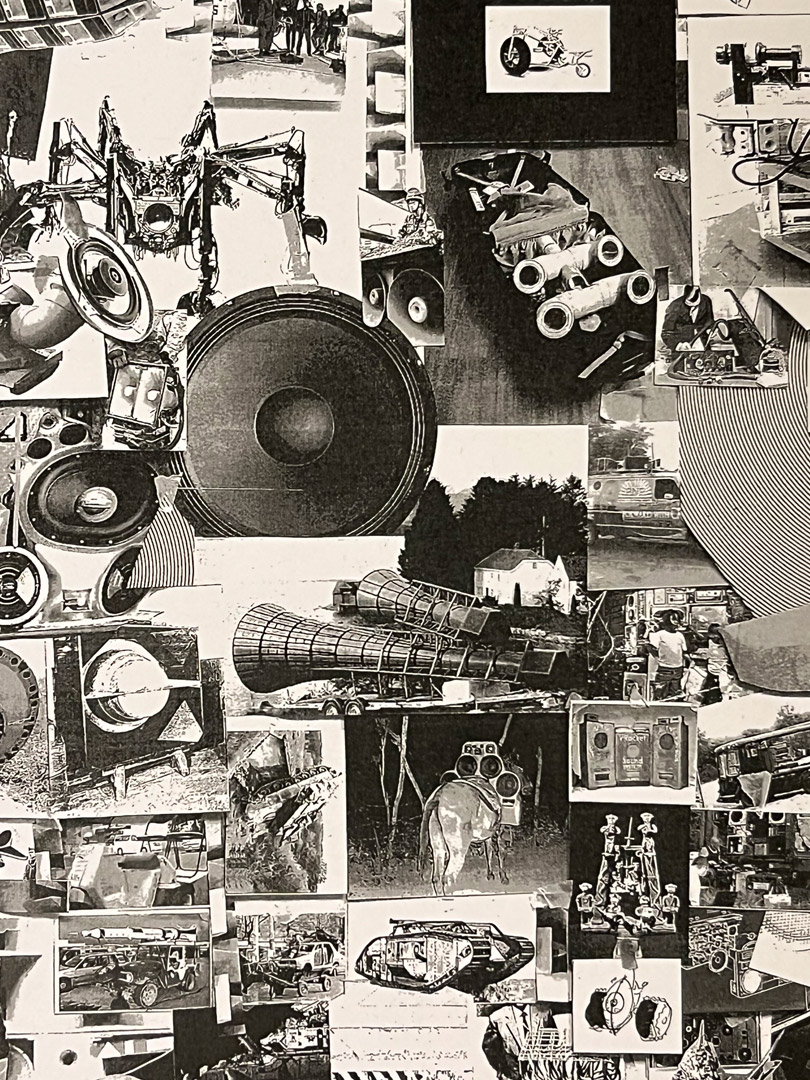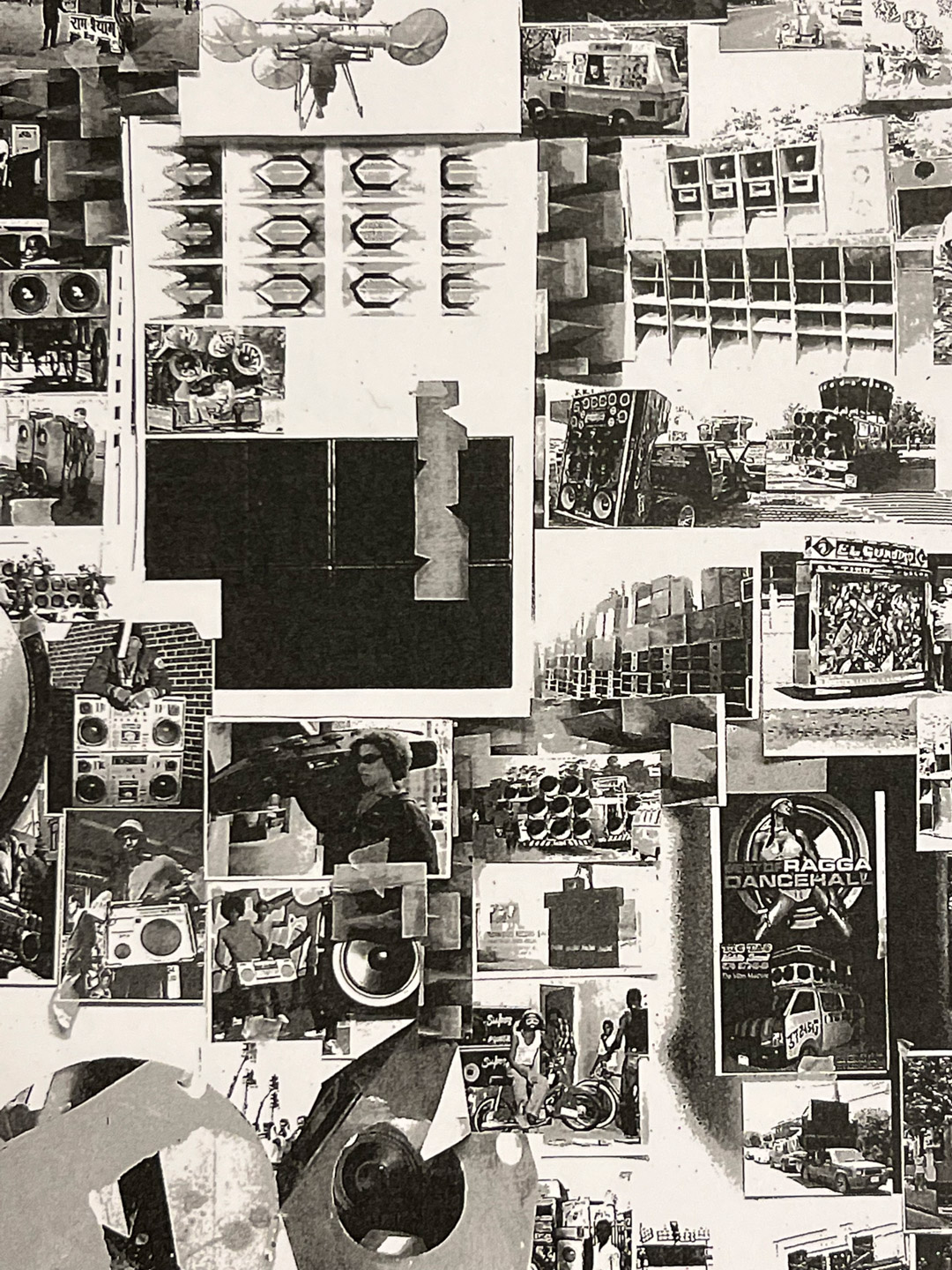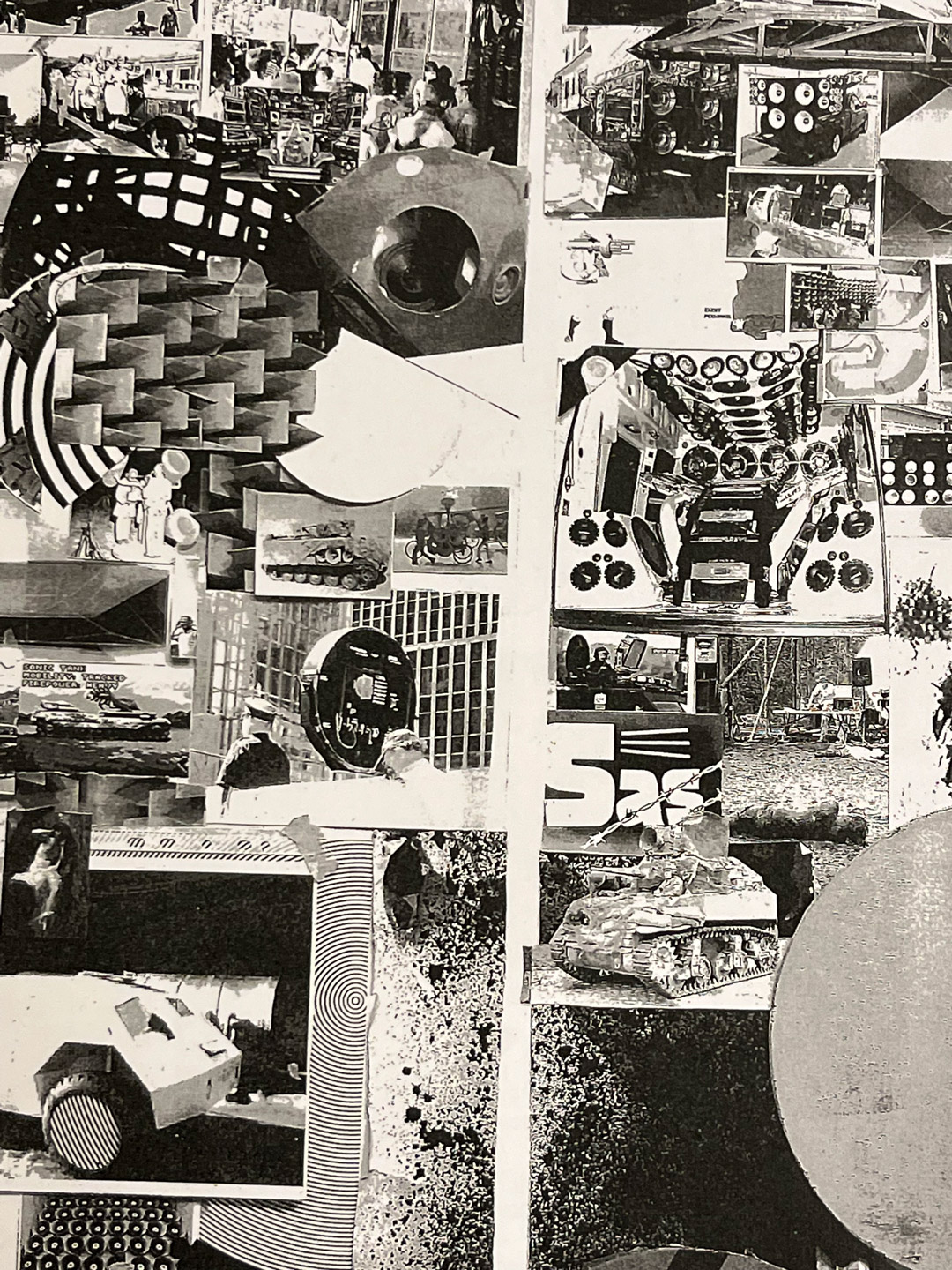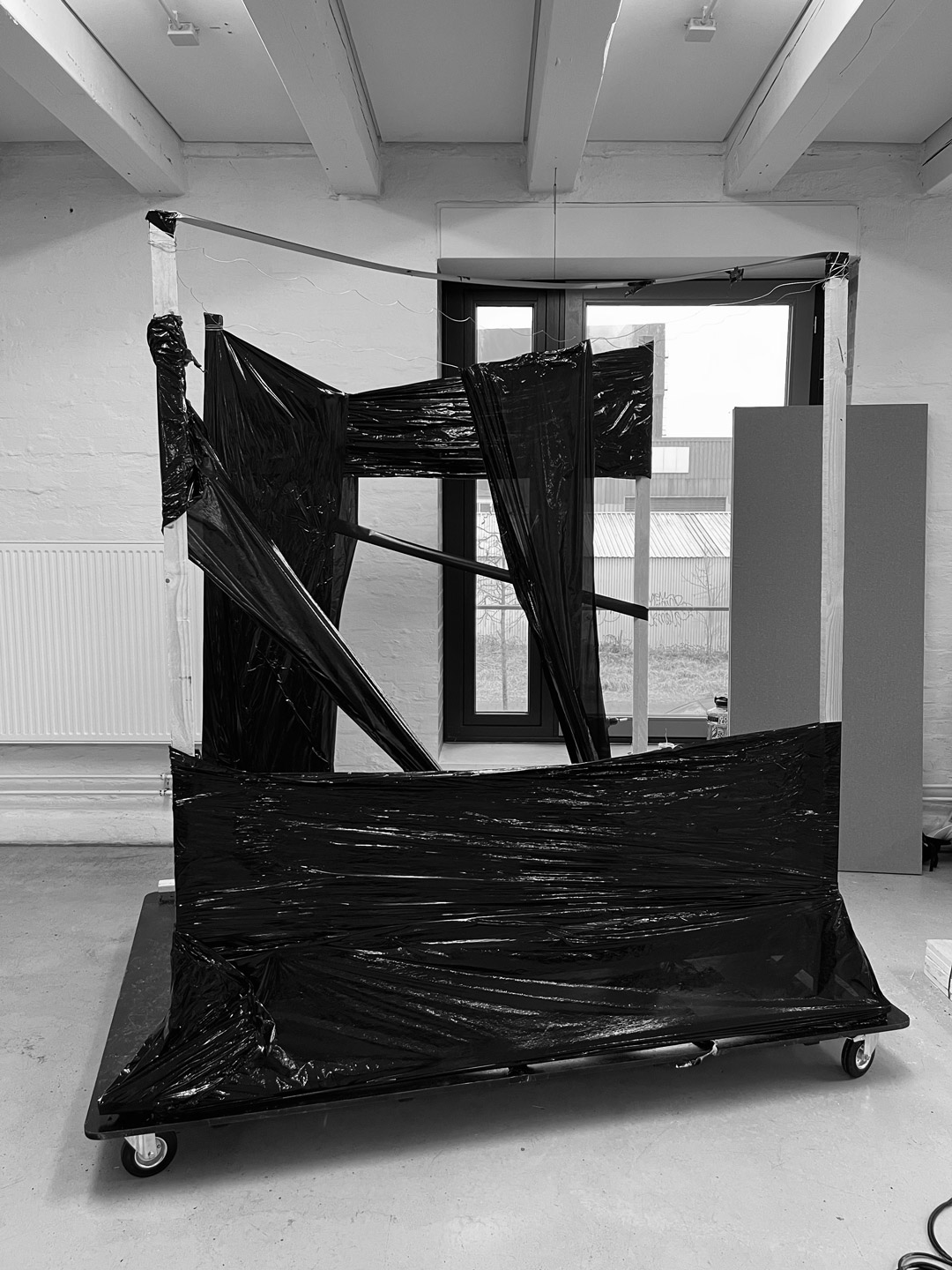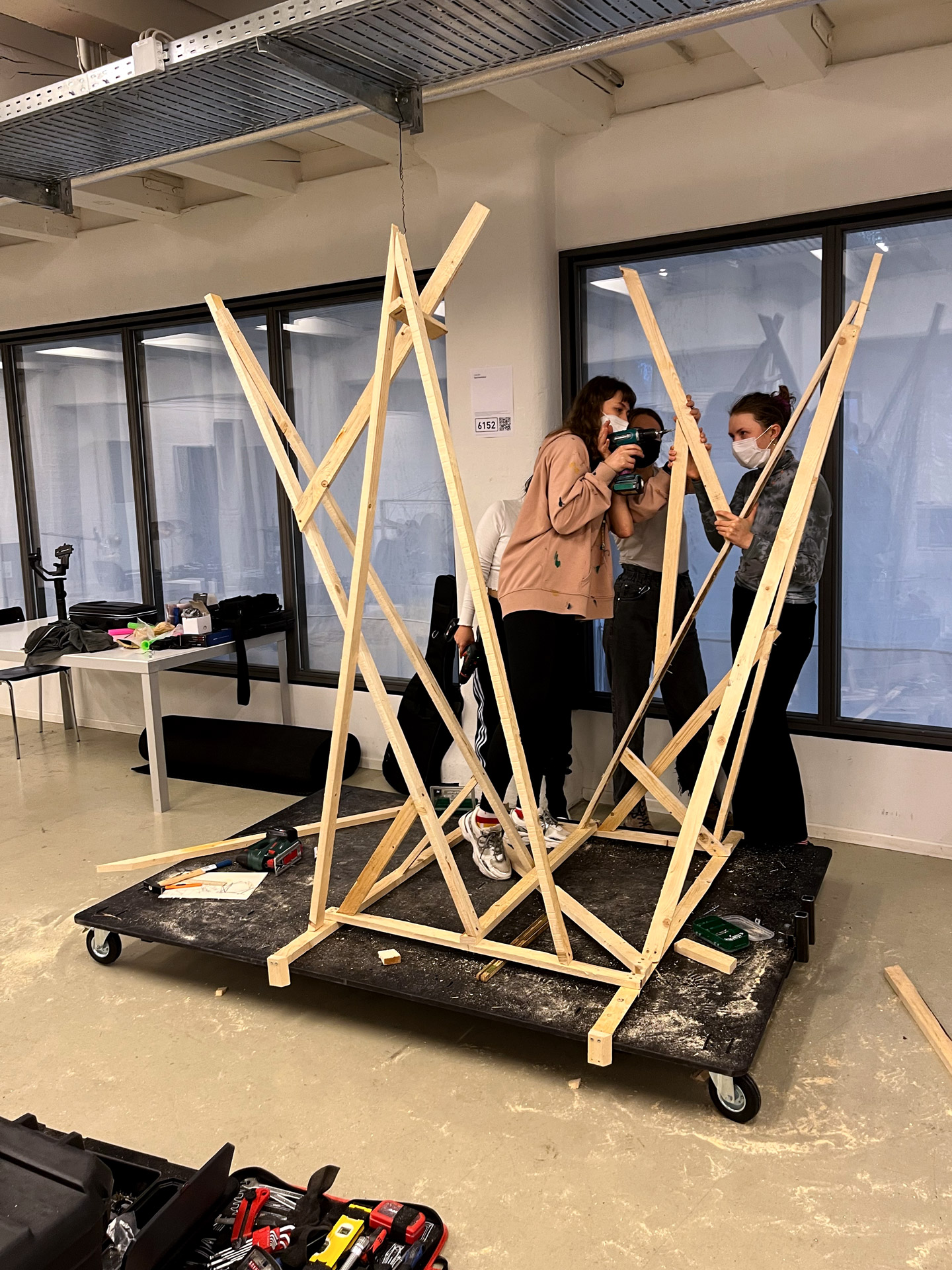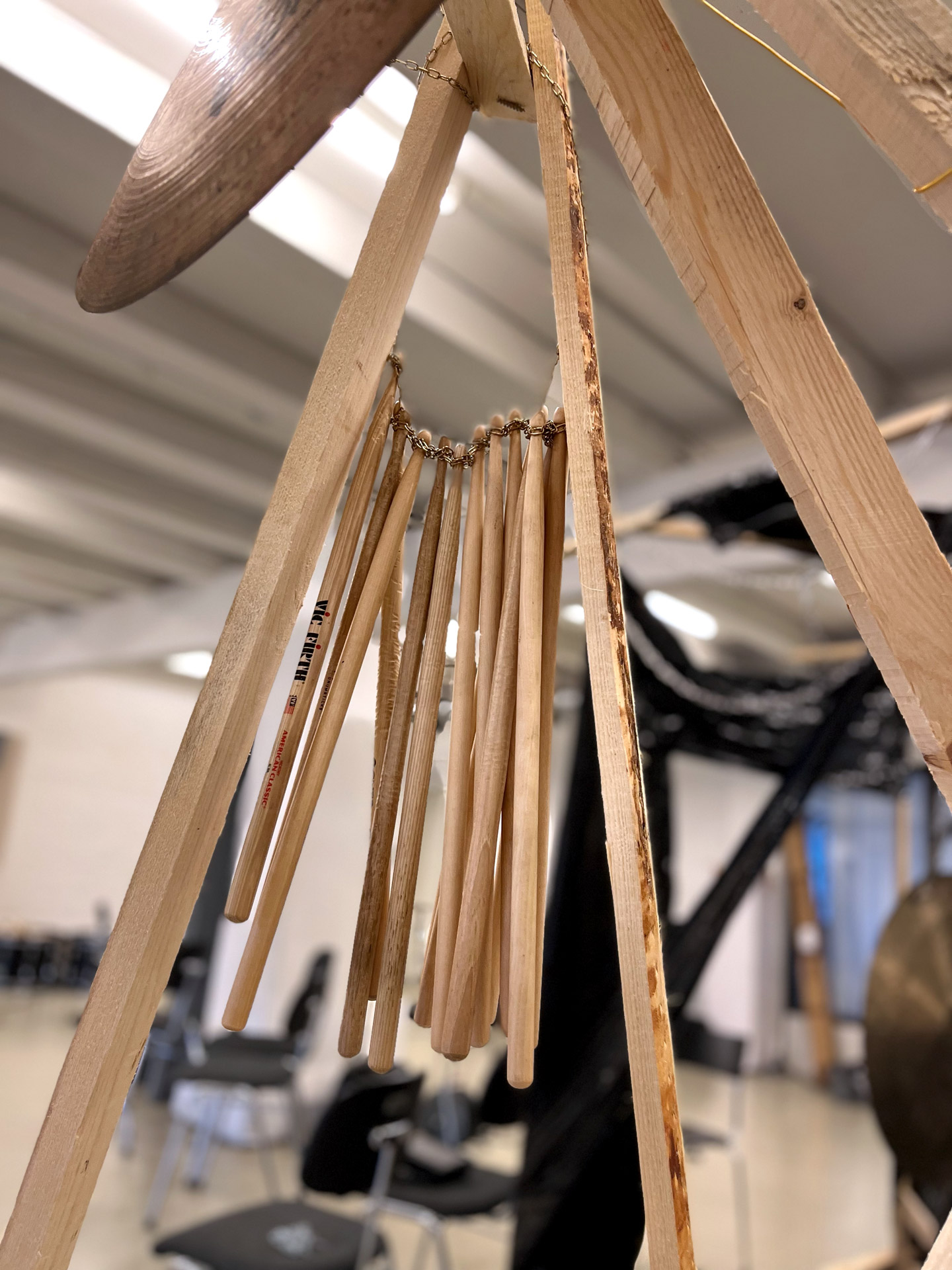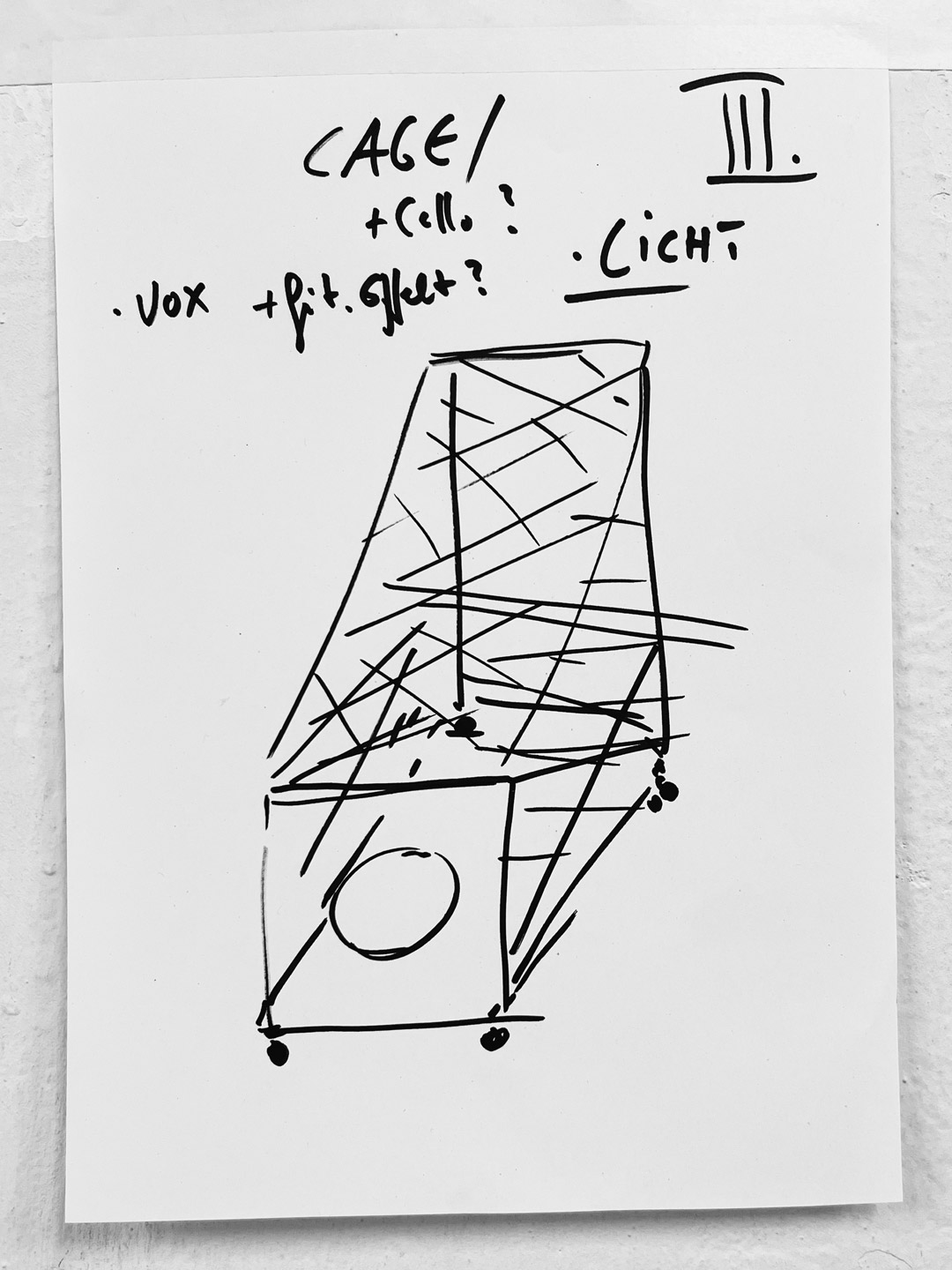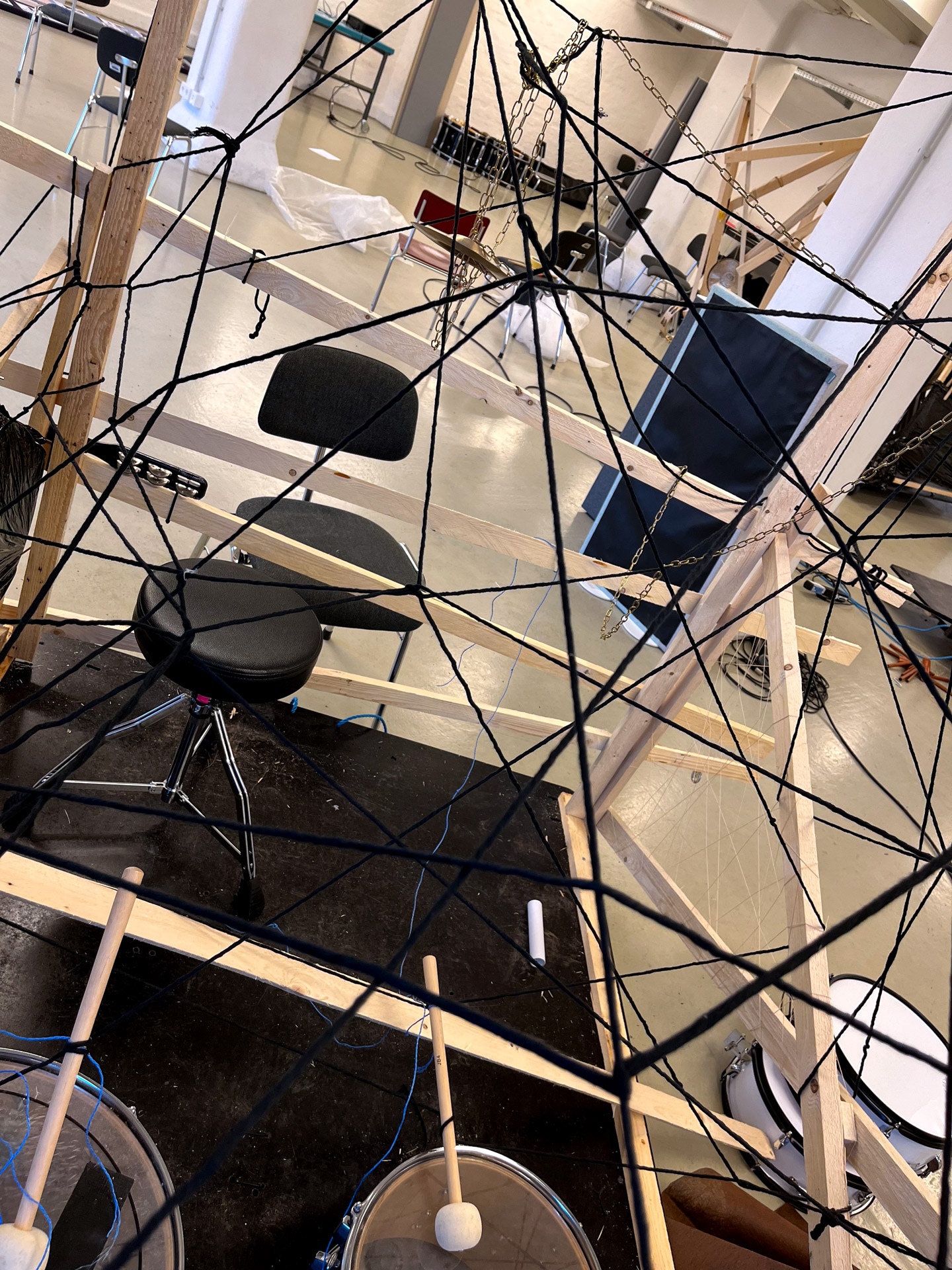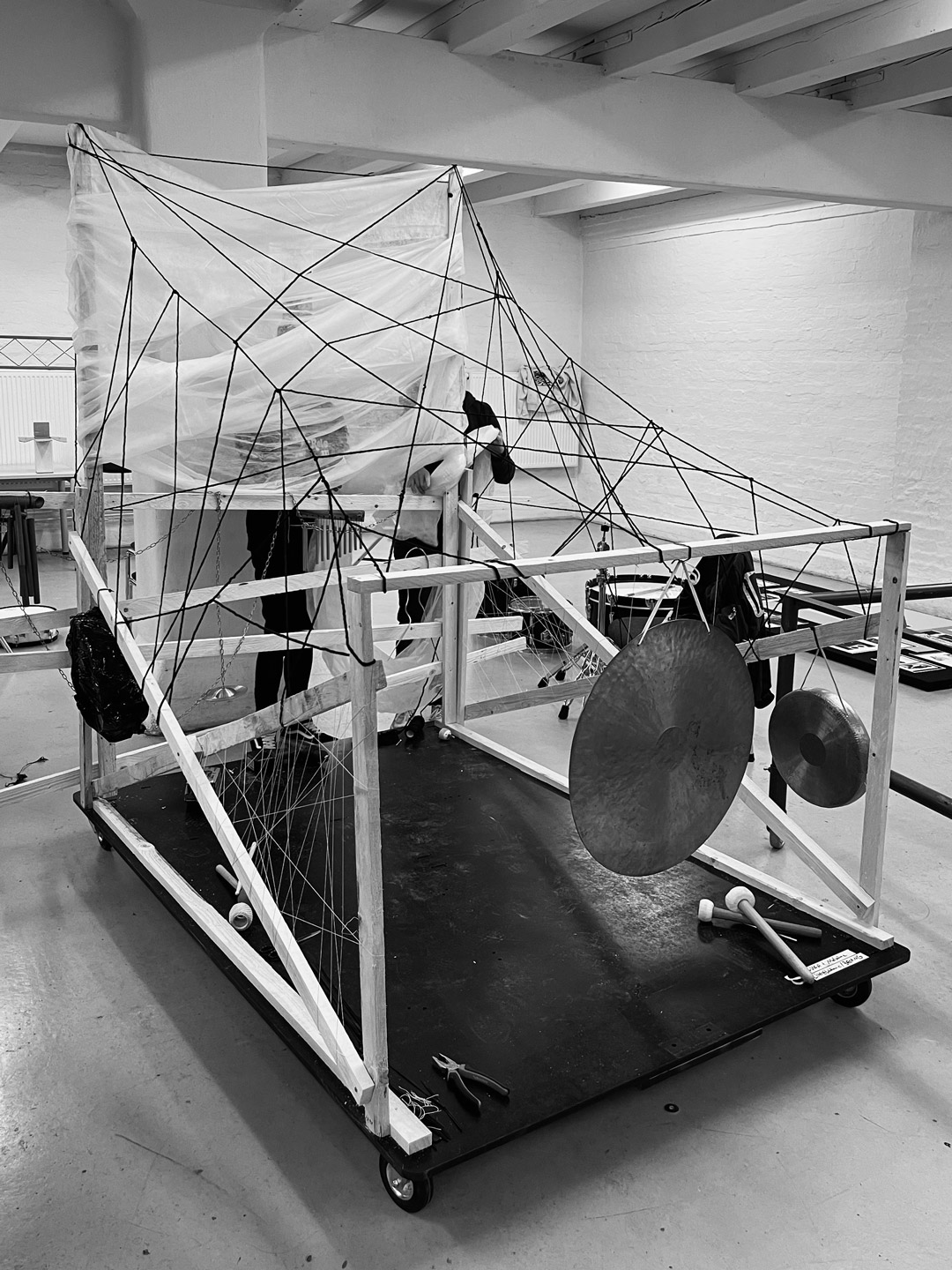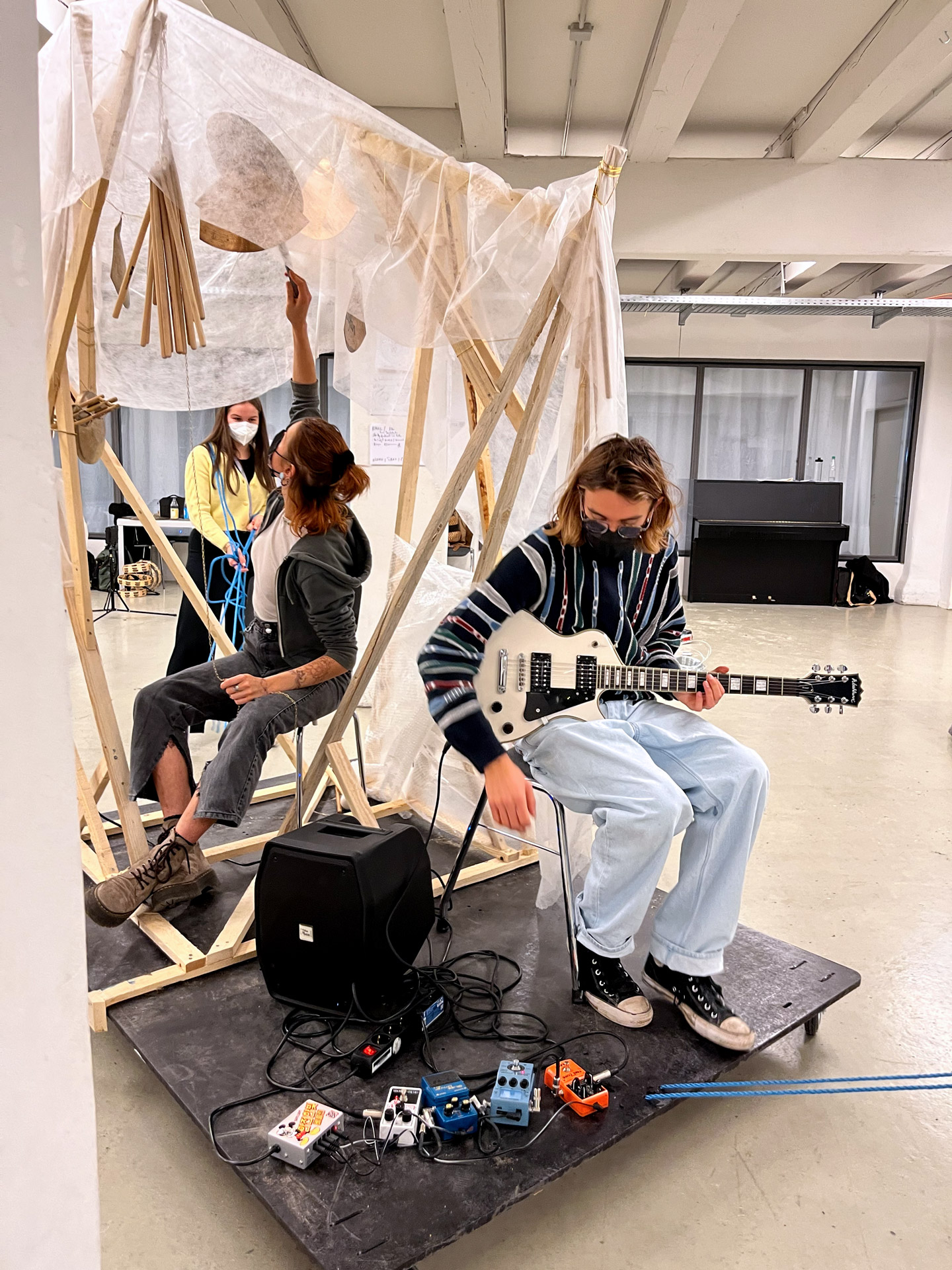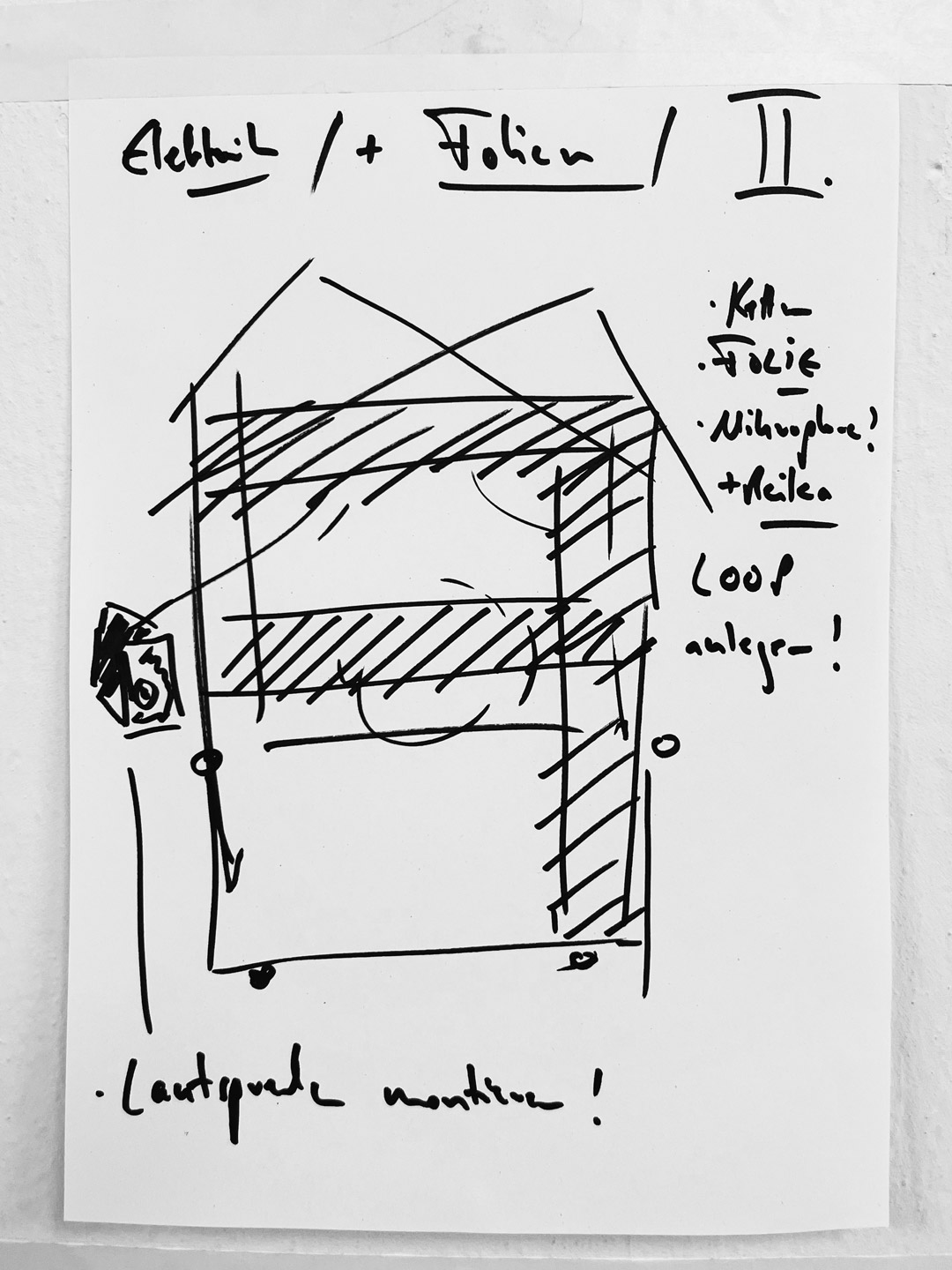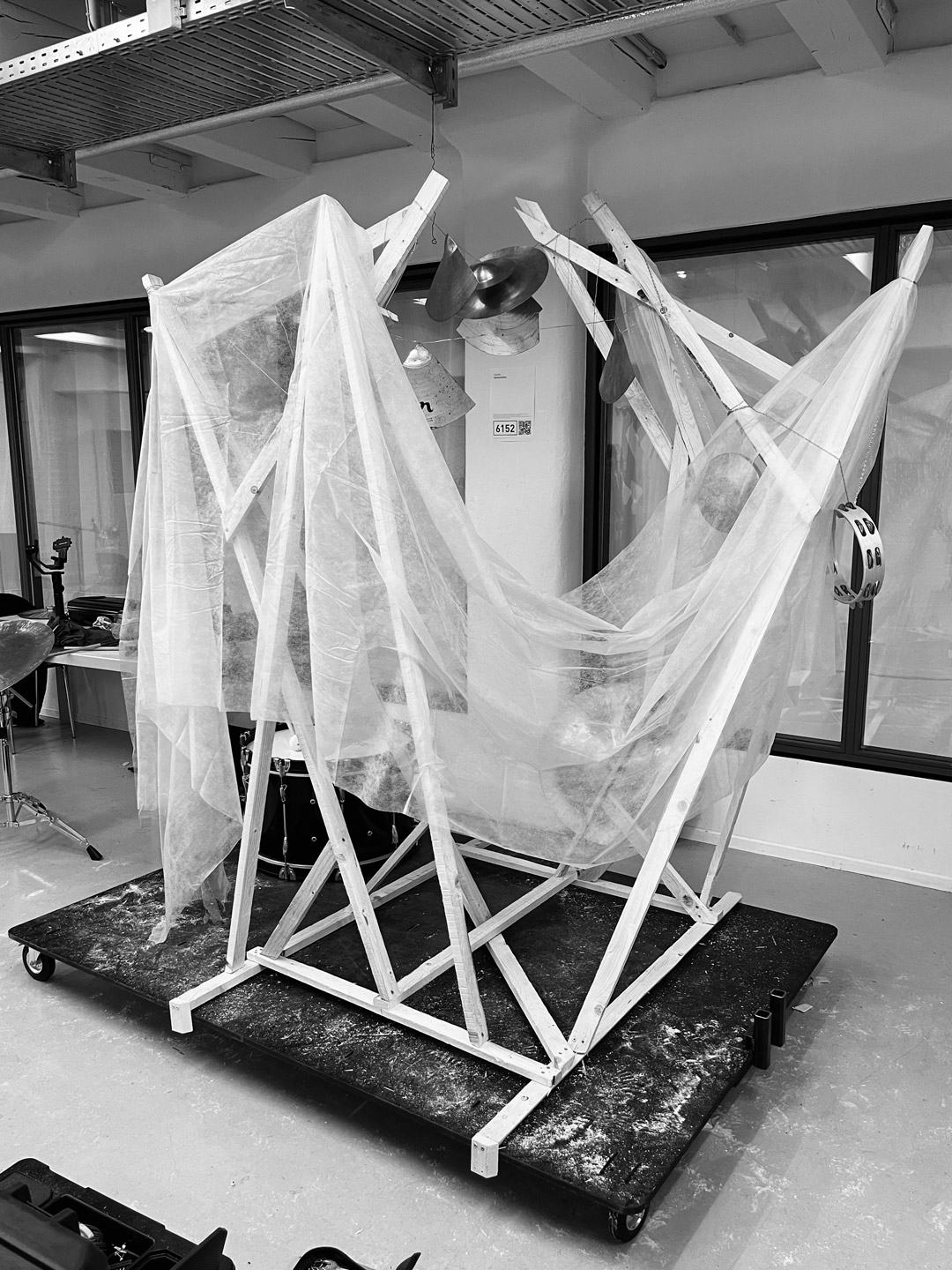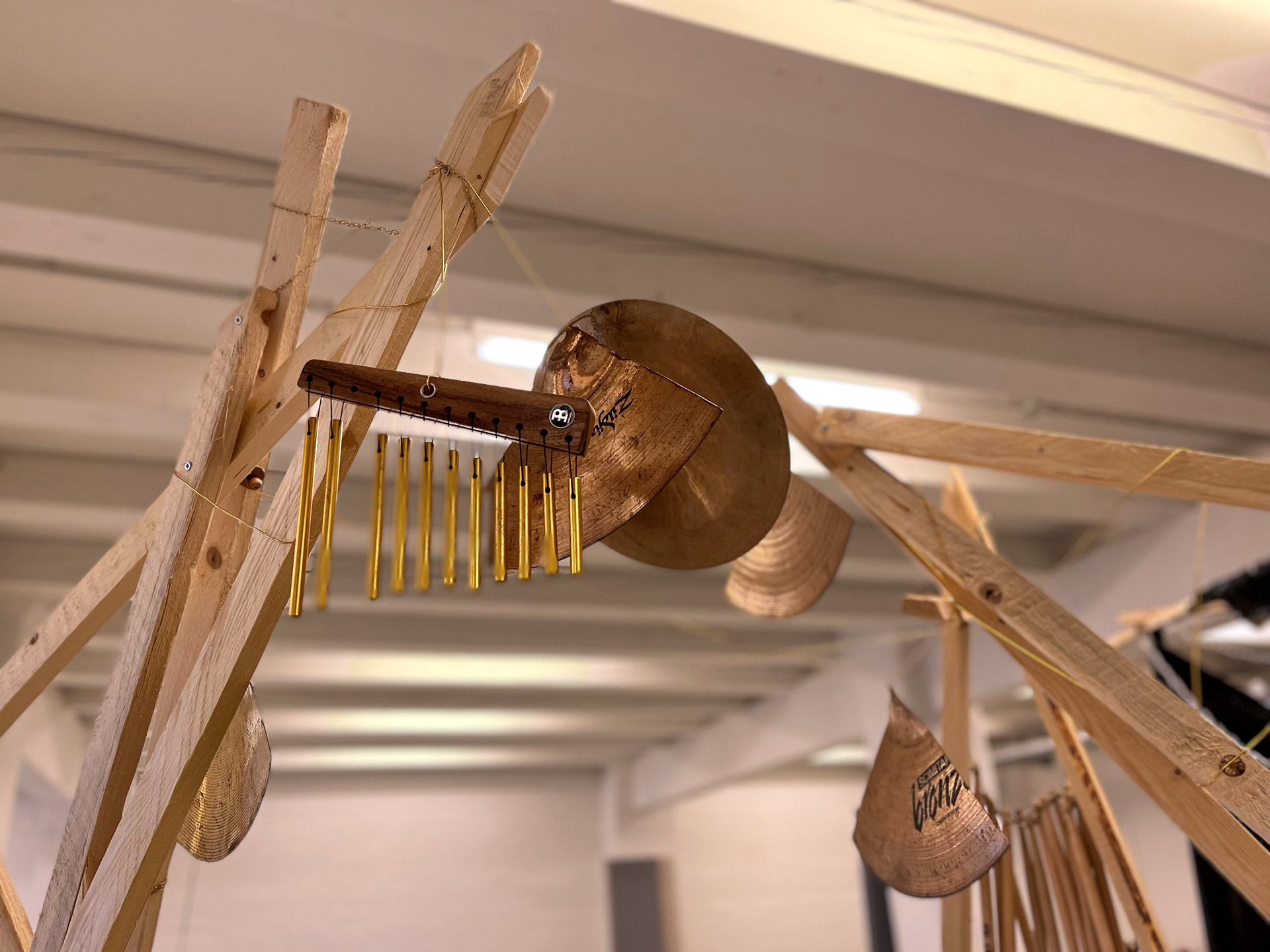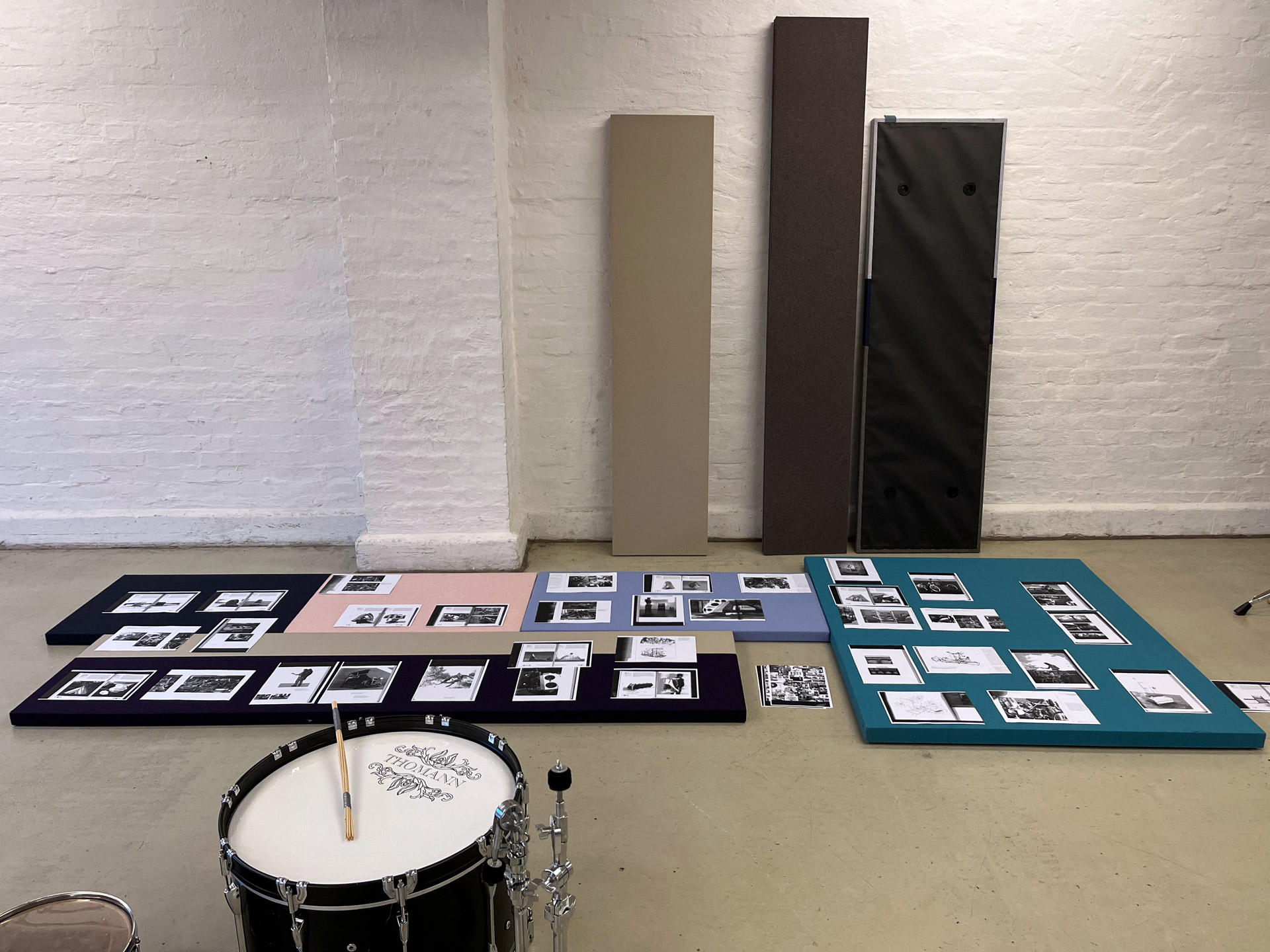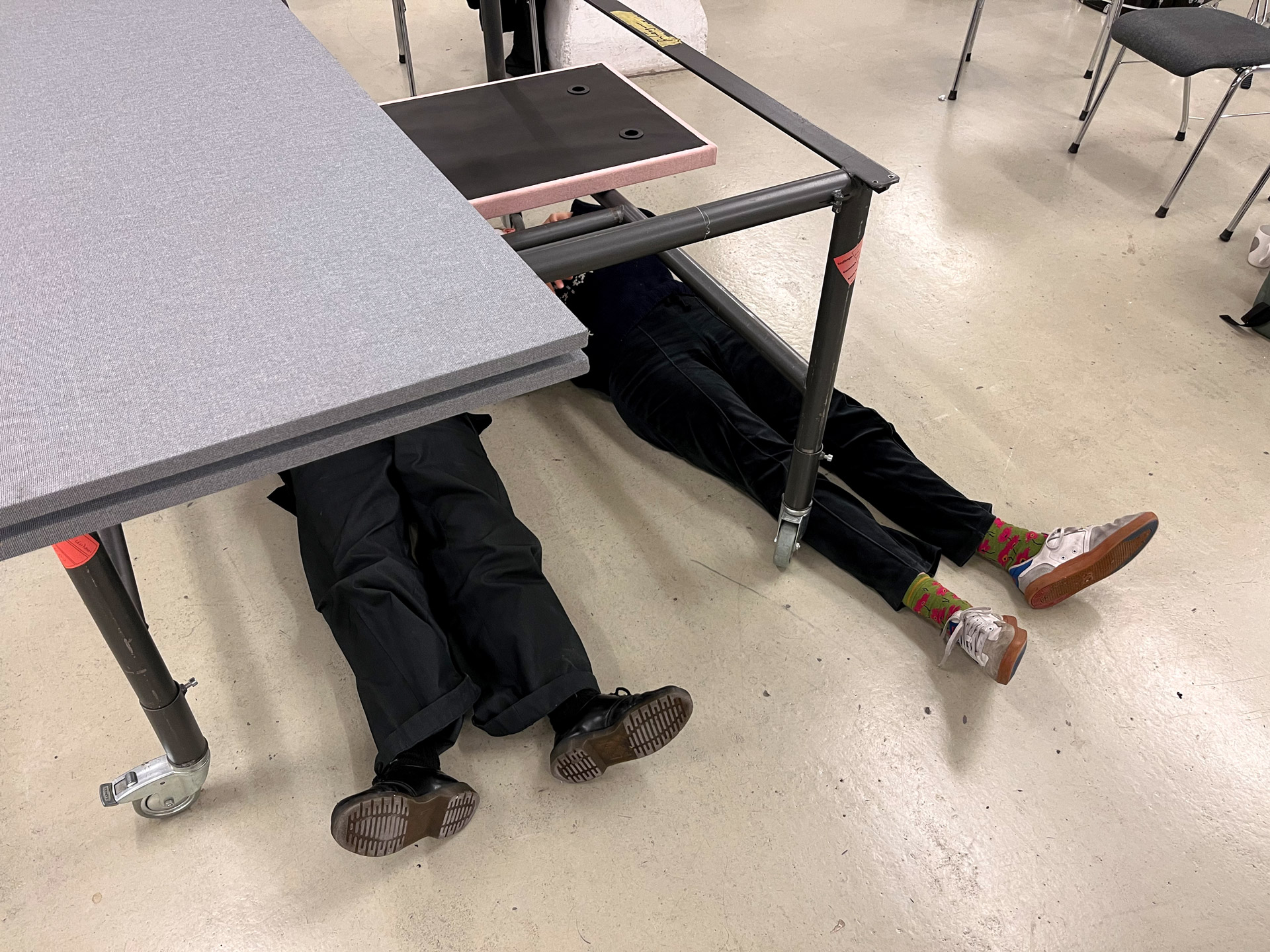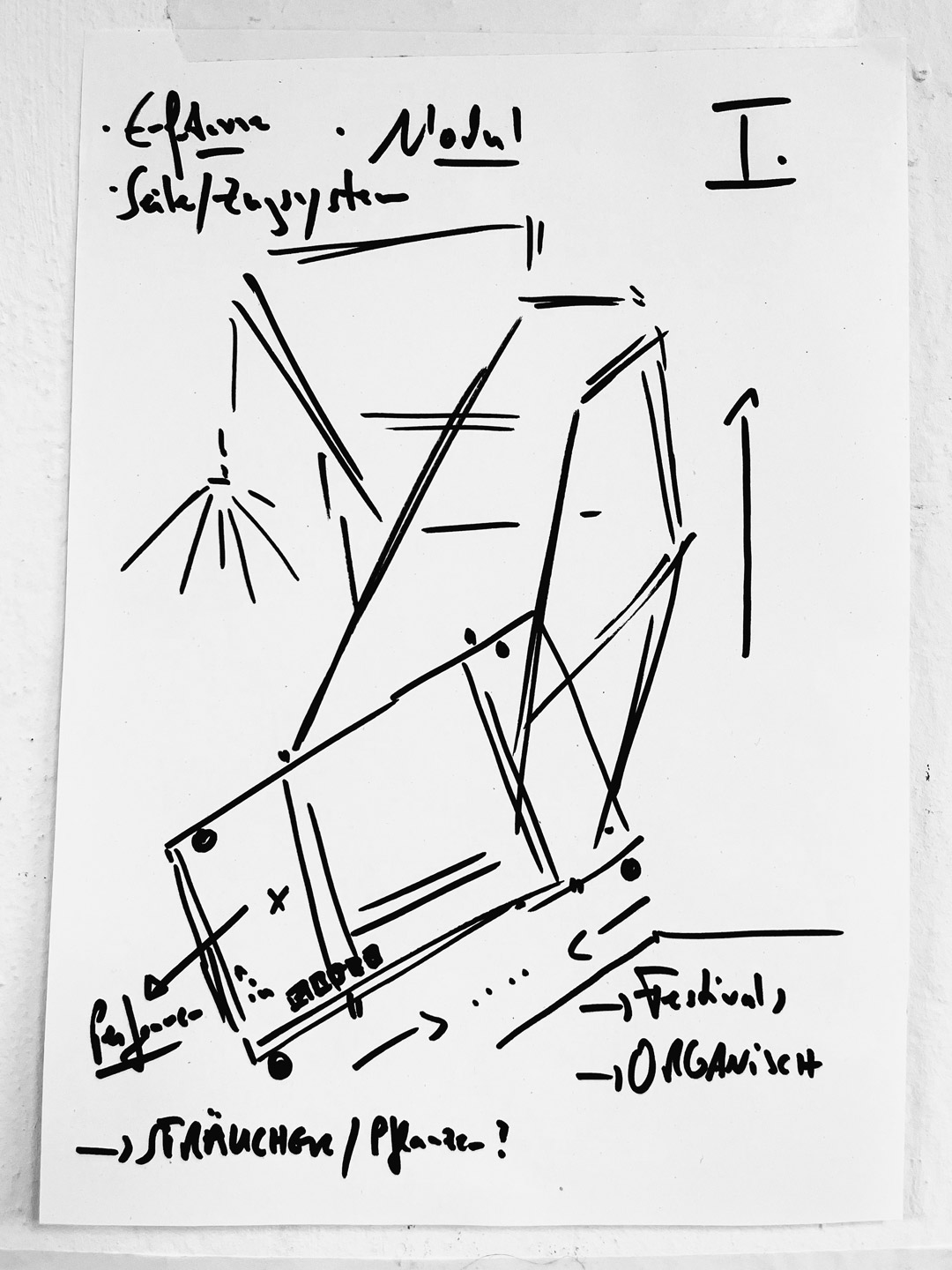Der Lauf der Dinge
Körper Tanz Protest
Credits
Lehrformat und Workshop im Wintersemester 2021 / 22
Betreut von: Prof. Raphael Sbrzesny
Mit Arbeiten, Konzepten und Input von den Studierenden: Konstantin Ruther, Jonathan Brunken, Lina Brockop, Lara Rau, Finn Knutzen, Lee Hanseul, Joanna Jappen, Hanna Everding, Noura Asayed, Celine Schesnik, Leonie Iwohn, Carola Mittelstrass, Reika Hattori, Thiemo Pitsch, Sarah Finja Rost, Ali Kagan Söylerkaya, Guillermo Bolentini, Malte Servaty, Berit Riekemann, Ruby-Marie Lohse, Berna Esra Ayzit, Anna Christiansen, Siman Chen, Franka Alina Denzin, Benjamin Schlemmer, Yilei Sheng, Leon Berger, Jule Denzin, Thi Laura Mai Nguyen Chi, Vera Deubner, Jiale Wei, Viacheslav Romanov u. a.
Der Lauf der Dinge
english
The course of things
Introduction to performative practice, sound and installation for designers
This year’s theme for the freshman workshops is: Funny. After one and a half years of emergency due to the pandemic, we know that sometimes a good pinch of humour helps to survive week to week in an everyday life dominated by ever new rules. Provided, of course, that one is spared major health worries. The artist duo Fischli and Weiss showed in their masterpiece: Der Lauf der Dinge (The Course of Things) from 1987 what happens when no stone is left unturned.
In a trail of everyday objects - found things and self-made apparatuses, tin cans - bicycle tubes and car tires tumbled, flames blazed and bathtubs tipped over. This film work, copied in countless commercials and music videos, will serve as a reference for an installation we want to develop together in the studio at the HfK. At the heart of it will be sound and music. We will transform the HfK into an obstacle course, which we want to open to a small audience in an exhibition at the end of the workshop. To all hobbyists and tinkerers, to all dreamers and screwers: This course will be fun. If you play an instrument or are interested in theatre, performance or stage design, this is the right place for you. For all those who want to get to know it first: YOU ARE WELCOME! This course is open to all. Requirements: have a penchant for cordless screwdrivers and jigsaws and don’t be afraid of 20 stacks of battens.
Translation: Adrianna Liedtke
Einführung in performative Praxis, Sound und Installation für Designer*innen
Das diesjährige Thema für die Erstsemesterworkshops lautet: Komisch. Nach eineinhalb Jahren Ausnahmezustand bedingt durch die Pandemie wissen wir, dass manchmal eine gute Prise Humor hilft, um Woche zu Woche in einem von immer neuen Regeln beherrschten Alltag zu bestehen. Vorausgesetzt natürlich, größere Sorgen um Gesundheit blieben einem erspart. Das Künstlerduo Fischli und Weiss zeigte in ihrem Meisterwerk: ‚Der Lauf der Dinge‘ von 1987 was passiert, wenn kein Stein mehr auf dem anderen bleibt.
In einem Parcours aus Alltagsgegenständen, gefundenen Dingen und selbstgebauten Apparaturen purzelten die Blechdosen, Fahrradschläuche und Autoreifen, loderten Stichflammen und kippten Badewannen. Diese in unzähligen Werbeclips und Musikvideos kopierte Filmarbeit soll uns als Referenz für eine Installation dienen, die wir im Atelier in der HfK gemeinsam erarbeiten wollen. Zentral soll dabei auch Sound und Musik Verwendung finden. Wir verwandeln die HfK in einen Parcours der erschwerten Bedingungen, den wir am Ende des Workshops in einer Ausstellung einem kleinen Publikum öffnen wollen.
Vgl.: Aus dem → Lehrveranstaltungsverzeichnis
Körper Tanz Protest
english
Body Dance Protest
Assembly and participation with the means of performative arts.
In this teaching format you will develop your own projects at the intersection of sound, performance, dance and public space. You will create your own music and sounds, costumes, film works, sculptures or a stage design. In doing so, we define the potential of design, art, and music in an open-ended sense as a way to shape social space as a whole and ask about ways to participate in political processes in which performative arts, bodies and voices that appear in them, play a central role.
At the beginning of the semester, we will take a field trip to GLOBAL GROOVE at the Museum Folkwang in Essen and learn about a dance history of ‘artistic contact between East and West cultures’ through photographs, paintings, sculptures, films, and performances. We will also engage with selected texts from the artistic-scientific graduate program: ‘Assembly and Participation: Urban Public Spheres and Performative Arts’ and the ‘Manifesto of Artistic Research’, which emphasises the potential and radicality of research based art. The goal is for you to gain insight into current discourses and, above all, understand how a particular form of knowing or thinking can emerge through the means of the arts. You will learn how to use this input to develop your own individual practice projects.
This course is for students in both departments and all majors: Music, Liberal Arts, Integrated Design, and Digital Media.
Translation: Adrianna Liedtke
Versammlung und Teilhabe mit den Mitteln performativer Künste
In diesem Lehrformat entwickelt ihr eigene Projekte an der Schnittstelle von Klang, Performance, Tanz und öffentlichem Raum. Ihr entwickelt eigene Musik und Sounds, Kostüme, Filmarbeiten, Skulpturen oder ein Bühnenbild. Dabei definieren wir das Potential von Design, Kunst und Musik in einem offenen Sinne als Möglichkeit, sozialen Raum insgesamt zu gestalten und fragen nach Möglichkeiten der Teilhabe an politischen Prozessen, in denen performative Künste und die dabei auftretenden Körper und Stimmen eine zentrale Rolle spielen.
Zu Beginn des Semesters machen wir eine Exkursion zu GLOBAL GROOVE ins Museum Folkwang in Essen und lernen anhand von Fotografien, Gemälden, Skulpturen, Filmen und Performances eine Tanzgeschichte des ‚künstlerischen Kontakts zwischen den Kulturen Ost und West‘ kennen. Außerdem beschäftigen wir uns mit ausgewählten Texten des künstlerisch-wissenschaftlichen Graduiertenkollegs: ‚Versammlung und Teilhabe: Urbane Öffentlichkeiten und performative Künste‘ und dem ‚Manifest der künstlerischen Forschung‘, welches das Potenzial und die Radikalität einer forschenden Kunst betont. Ziel ist, dass ihr einen Einblick in aktuelle Diskurse bekommt, wie mit den Mitteln der Künste eine besondere Form des Wissens oder Denkens entstehen kann, um dann mit diesem Input eure eigenen, individuellen Praxisprojekte zu entwickeln.
Vgl.: Aus dem → Lehrveranstaltungsverzeichnis
